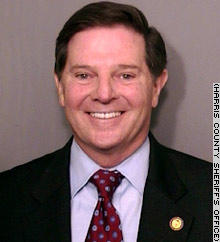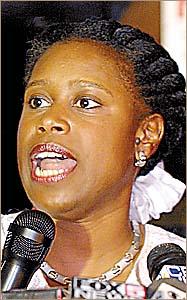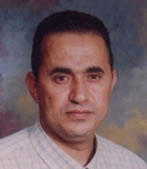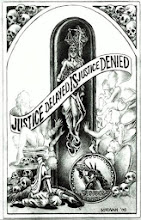
'I Don't Think She's Going to Be Withdrawn'
Arlen Specter talks about the Harriet Miers nomination.
BY MELANIE KIRKPATRICK
Saturday, October 22, 2005 12:01 a.m.
WASHINGTON--Call it a Mr. Hyde-to-Dr. Jekyll moment. When I stopped by the offices of Senate Judiciary Committee Chairman Arlen Specter late Thursday afternoon to chat about Harriet Miers's prospects for confirmation to the Supreme Court, I had expected to find a less enthusiastic supporter.
Only 24 hours earlier, the moderate, pro-choice Republican had taken the extraordinary step of teaming up with the committee's ranking Democrat, Patrick Leahy, to assail Ms. Miers's answers to a lengthy Senate questionnaire as "insufficient" and request further information. No Supreme Court nominee had ever before endured the humiliation of having her questionnaire bounced back for a do-over.
If that wasn't bad enough, from the White House's point of view, Mr. Specter did so in a joint press conference with Mr. Leahy in which the chairman more than once seemed visibly annoyed with the nominee. It was a "vituperative" performance, in the assessment of one Republican involved in the confirmation process. The old "Snarlin' Arlen"--a nickname the former Pennsylvania prosecutor can't seem to live down--was on display.
But the day of our interview was sunny--with afternoon light streaming in the long windows of his corner billet in the Senate Hart Office Building--and the senator's mood was sunny, too. As I sit in the very spot on the camel-backed sofa where Ms. Miers had sat days earlier, the senator leans back in his chair, hoists a foot up on the coffee table and talks about the candidate, the confirmation process and the conservative revolt against Ms. Miers.
"There's one person who has a pretty good line on Harriet Miers's opinions," he says, "and that's the president." How much deference is a president due in his selection of a nominee? "At least from the time he nominates her until the time she gets to the hearing," he says, emphatically. His voice rises: "But so far he hasn't got that little, that modicum, of deference. She has been pilloried, instantly . . . I.P.--Instant Pillory."
Mr. Specter may just have coined another Beltway verb. Just as the failed nomination of Robert Bork introduced the word "bork"--lower-case "b"--to the English language, future nominees facing attack may be talked about as having been "I.P.-ed." As the sole Republican to vote against the Reagan nominee, Mr. Specter was present at the creation of the word "bork," too.
In his press conference on Wednesday, Mr. Specter described the Miers confirmation process as "chaotic," and in our interview he directs more fire at conservative activists. "I'm trying to avoid being distracted by collateral issues such as who told what to Dr. [James] Dobson, or what was on the conference call when a [Texas judge] said, sure, 'She'll overturn Roe,' and a second one said, 'I concur.' You can't ignore that. You have to find out if any of that is connected to her. But she's the one being confirmed. The Judiciary Committee shouldn't hold it against her if a lot of people are talking on their own."
Will he call them as witnesses in Ms. Miers's hearing?--a prospect rich in ironies, especially in the case of Dr. Dobson, who vehemently opposed Mr. Specter's elevation to the Judiciary chairmanship earlier this year. "I'm thinking about it," he says. Meanwhile, he's having his staff talk to Dr. Dobson and the Texas judges to find out exactly what they did or did not say. "There's some talk of wanting to place them under oath," he says, "and I'm opposed to that. It's a violation of 18 U.S. Code 1001 to give a false statement to a federal official, and I think that's sufficient. It carries a jail term. . . . But I don't think anyone's interested in prosecuting someone for perjury. We want to find out what the facts are."
As for the nominee herself, Mr. Specter says he's examined her legal record and is impressed. "During the recess, I took home a large compendium of cases that she'd been involved in and I studied them, and I found out they were very complex," he says. "She had an underground easement case which was very complicated, she represented Disney in a jurisdiction issue in Texas, she represented Microsoft in a patent case. She represented a woman, pro bono, on Social Security [and] a criminal defendant in a habeas corpus case. And I could see as I went through her legal record that she's a good lawyer. She deals with complex, conceptual issues and, I think, demonstrates the capacity to handle a wide variety of issues, including constitutional issues." He keeps a list of questions about her cases on his desk, so that when reporters stop by he can refer to it. "I watch their eyes glaze over," he says, looking into mine with a small grin.
"Malice aforethought."
The senator says his knowledge of her record as a corporate lawyer is one reason why he was dissatisfied with her "insufficient" responses to the Senate questionnaire. She mentioned "only a few cases," he says. "She ought to know more about the cases she's handled than the Judiciary Committee doing research in the course of a few days." He faults the White House, which "didn't give her enough help on the questionnaire."
He also wants to know more about Ms. Miers's work in the White House and how it could bear on issues that are likely to come before the court. "For instance, Guantanamo is coming up in a number of dimensions. Did she give the president advice on that? I'm not asking her what advice she gave the president, but I think I ought to know whether she gave the president advice and if she's going to recuse herself." After abortion, executive authority will be the most discussed issue at her hearings, he predicts, because she is so close to the president.
Mr. Specter says he told Ms. Miers that the questions he asked John Roberts in his confirmation hearing last month will be a "roadmap" to the questions he'll ask her. He gave her copies of two detailed letters he had sent Mr. Roberts in August about what to expect. Roe v. Wade is at the top of his list, he says, and he plans to ask her about the weight she thinks Roe deserves as a precedent: "Do you consider a woman's right to choose being embedded in the culture of our society?"
More broadly, he wants to hear whether she believes in an "evolving" Constitution. "I'm going to ask her in a very gentle way. I'm going to say, Chief Justice Roberts agrees that the Constitution is a living thing. Do you agree with that? As values change, the Constitution accommodates to the needs of modern society. I'll give her a chance to agree with Roberts."
Earlier in our conversation he'd spoken of the influences that helped to shape his own understanding of the Constitution. "One thing I drew on which I don't talk about much: I was an assistant D.A. when the Warren Court revolutionized criminal procedures, search and seizure, Miranda, the right to counsel--and I saw it change before my eyes. So I know what a changing Constitution is. And of course that's a gigantic thing. Justice Scalia would disagree with the evolving Constitution. Roberts agreed with me."
The Miers hearings are scheduled to begin on Nov. 7, and Mr. Specter politely notes how difficult it will be for a nominee who isn't immersed in constitutional law to get up to speed quickly. It's evident that he's skeptical that Ms. Miers has enough time to prepare. "I'm aware of how tough it is to move into the field in a short period of time, to master it and joust with 18 senators. And I told her as much." He says it took him all of August and more to refresh his understanding of constitutional issues and get up to date on recent Supreme Court decisions in time for the Roberts hearings. He sought the help of seven or eight law professors (whose names I was unable to prise out of him), with each of whom he spent several hours. "It's a daunting task. . . . I told her I would not start the hearings until she told me she was ready. She said Nov. 7 would be acceptable. It's a very, very big job."
Back on the subject of Instant Pillory, Mr. Specter lays to rest one of the I.P.-ers' accusations against Ms. Miers--the charge that she was not closely involved in the judicial-selection process. "The president says she knows what kind of judges I want because she's helped pick 'em. And some unnamed staffers on the Judiciary Committee say, no, she wasn't much involved in that. But I think she was. I talked to her about a lot of judges."
The senator also tries to quell mounting speculation that Ms. Miers's nomination will die before it can make it to the hearing-room. He says he's "confident" there will be a hearing. "I don't think she's going to be withdrawn."
"Whether she's going to be confirmed is totally in her hands," he says. His fellow Senators don't know much about her now--"she doesn't say very much in the meetings"--but soon Ms. Miers "will have center stage. . . and the opportunity to prove her mettle."










